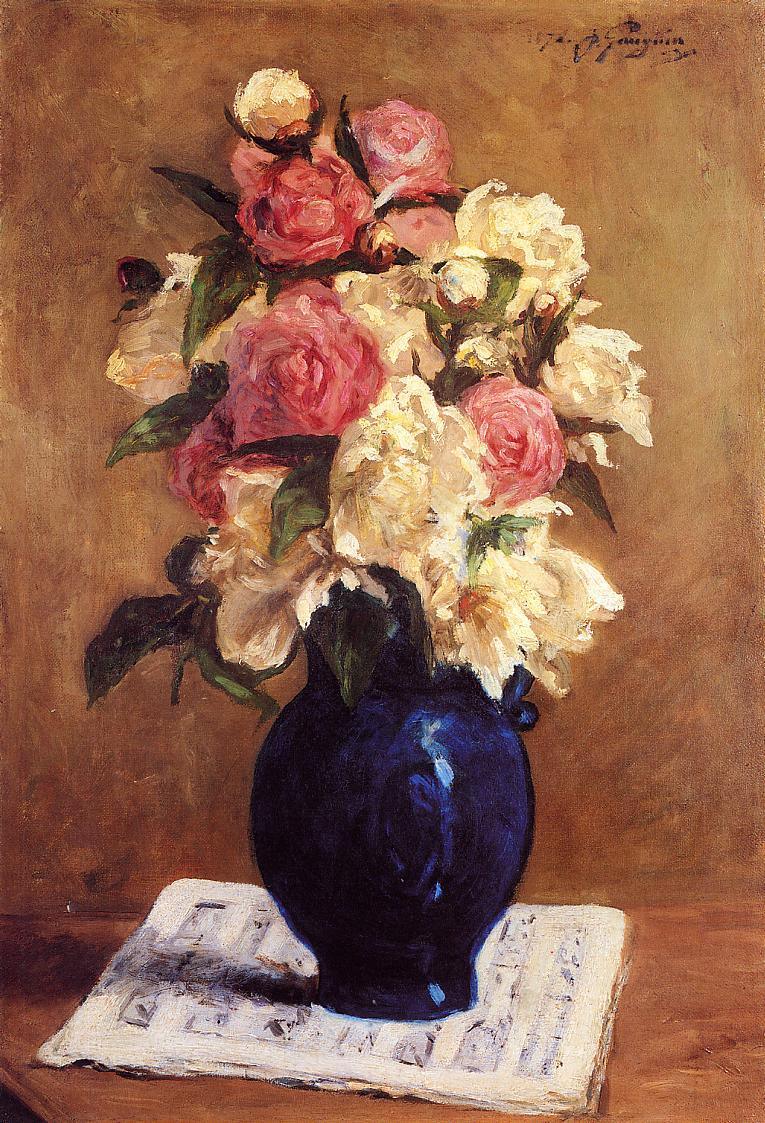Description
The painting "Bouquet of Peonies on a Musical Score" by Paul Gauguin is a masterpiece of Post-Impressionism that combines the beauty of nature with music. The composition of the painting is unique, as the bouquet of peonies is in the center of the image, while the musical score spans the entire background.
Gauguin's artistic style is characterized by the use of bright, saturated colors, and this painting is no exception. The red and pink tones of the peonies contrast with the dark green of the leaves and the light yellow background of the musical score. Gauguin's technique of applying paint in thick, textured layers creates a sense of depth and movement in the painting.
The story behind this painting is fascinating. Gauguin painted it in 1893 while living in Tahiti, where he was inspired by the island's natural beauty and Polynesian culture. The musical score in the painting is a traditional Polynesian song that Gauguin heard while living there. The combination of music and nature in the painting reflects the connection Gauguin felt between Polynesian culture and nature.
A little-known aspect of this painting is that Gauguin gave it to his friend and fellow painter, Émile Schuffenecker, as a gesture of friendship. Schuffenecker was an artist and art collector who supported Gauguin in his artistic career. The painting remained in Schuffenecker's collection until his death in 1934, when it was sold to a private collector.

